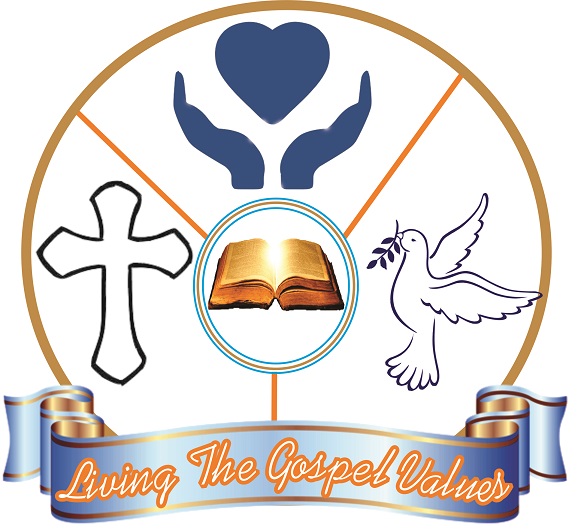Giving up of Self-righteousness
Living the Gospel Value
November 15, 2021
Reflection on Today's Readings, Tuesday of 33rd Week in Ordinary Time, Year 1, November 16th, 2021
Texts: 2 Mac. 6:18-31; Ps. 3:2-7; Luke 19:1-10
Today, Jesus teaches us, in His own very life, that we should give up self-righteousness. Self-righteousness is when one is only concerned about one's own righteousness. Righteousness is sterile when there is no drive to lead others to righteousness. Jesus, in today's gospel reading, did not mind the criticisms of people but went ahead to bring Zaccheaus to righteousness and thereby saved him. This same theme is prominent in the first reading, Eleazar had the opportunity to maintain self-righteousness but for the sake of those who would be led astray, he preferred to die. He chose to die to bring others to righteousness. He left for us an example of heroic life. He is presented to us for emulation. We are to be like him living a life worthy of inspiring righteousness in others. We need to come out of our enclosure to lead others to righteousness.
One thing that is very heroic in the act of Eleazar was his giving up of natural love for life for righteousness of others. You and I know how strong such love for life is. The question now is this: can I do it? Can you do it? Perhaps, when we get to the point, right? Is it me that cannot let go friendship for God that we let go natural love of life! If I could lie to preserve friendship, will I not lie to preserve natural love for life? If I could lie, slander or betray a friend for money, will I not do more to preserve natural love for life? We have many more questions to ask ourselves to discover our true state as Christians. The main point, here, is that we are reminded once again that to be Christian we must be ready to renounce natural love of life for God.
These words of Eleazar are worthy of reflecting upon: "Therefore, by manfully giving up my life now, I will show myself worthy of my old age and leave to the young a noble example of how to die a good death willingly and nobly for the revered and holy laws.” Good death is to die for righteous course, to die leaving good example. That is the kind of life we should aspire to die.
There is a kind of pretence that Eleazar warns us against. This pretence is a way of life that encourages inner purity and downplays external practices of the faith. Some Christians claim they can dress prostitute but in so far they are not prostitutes, God is happy with them. Some Christians could afford to dress like bad guys but in so far they are not bad guys, God is pleased with them. Some people will claim that in so far they are good, they do not need to go to Church. Those Christians do not mind the message they send to the people around. Eleazar warns us thus: "Such pretence is not worthy of our time of life,” Such pretence is not worthy of Christian faith, let us give it up.
Reflection on the life of Zaccheaus brings to mind the prophetic words of Isaiah, "All these things my hand has made, and so all these things are mine, says the Lord. But this is the one to whom I will look, to the humble and contrite in spirit, who trembles at my word" (Is. 66:2). What a rich man would act like Zaccheaus, if he is not humble? He was a chief tax collector and was rich. It would be nothing if not humility that made him seeking to see Jesus and to climb up a tree to have a view of Him. He left for us the example of humility to follow. We need to come down from our high heel to seek God sincerely. Zaccheaus sought God and God find him and live with him.
Zaccheaus went to catch a glimpse of Jesus but found more than he bargained; he received Him into his house and gained salvation. All we need to do is to take a step to seek Him, He will do the rest, He will show Himself to us. Some of us do not make attempt to seek God. We are too busy to seek God: no time to pray to Him, no time to read His words. Zaccheaus teaches us, today, to create time out of our busy schedule to seek God. Let us seek God He will make His home with us.
Lord our God, by your grace, heal us of self-righteousness and may we live to inspire in others the life of holiness.
Fr. Andrew Olowomuke
- July 20251
- January 20253
- December 20242
- November 20245
- October 20244
- September 20242
- August 20245
- July 20247
- June 20247
- May 202413
- April 202420
- March 202422
- February 202428
- January 202434
- December 202333
- November 202330
- October 202333
- September 202329
- August 202331
- July 202331
- June 202315
- October 20221
- September 20228
- August 20221
- July 20221
- June 202218
- May 202230
- April 202230
- March 202210
- February 20229
- January 202228
- December 202133
- November 202130
- October 202130
- September 202115
- August 202128
- July 202131
- June 202128
- May 202133
- April 202128
- March 202130
- February 202131
- January 202131
- December 202032
- November 202032
- October 202034
- September 202028
- August 202031
- July 202031
- June 202026
Wikipedia
Search results
Contact Form
Popular Posts

"My Kingship is not of this World"
November 23, 2024

Rejoice and Exult
December 14, 2024

What do We Resort to?
May 01, 2022
AD BANNER






0 Comments